As mentioned in this document about storing application data, I would like to make it possible from a Google App Script Add-on server code.
I was able to create an arbitrary file into my google root drive folder this way.
DriveApp.createFile('Test', 'Test content');
But was not able to figure out how to create it into (hidden) app data folder:
var dir = DriveApp.getFolderById("appDataFolder");
var file = dir.createFile('Test', 'Test content');
Receiving "Access denied" by executing it.
I guess I have to apply this following scope to my app but do not know how apply it on a google app script.
Scope: https://www.googleapis.com/auth/drive.appdata
Drive API is well activated.
It would be nice if I could update these scopes (File>Project Properties menu):
Any help would be so appreciated.

